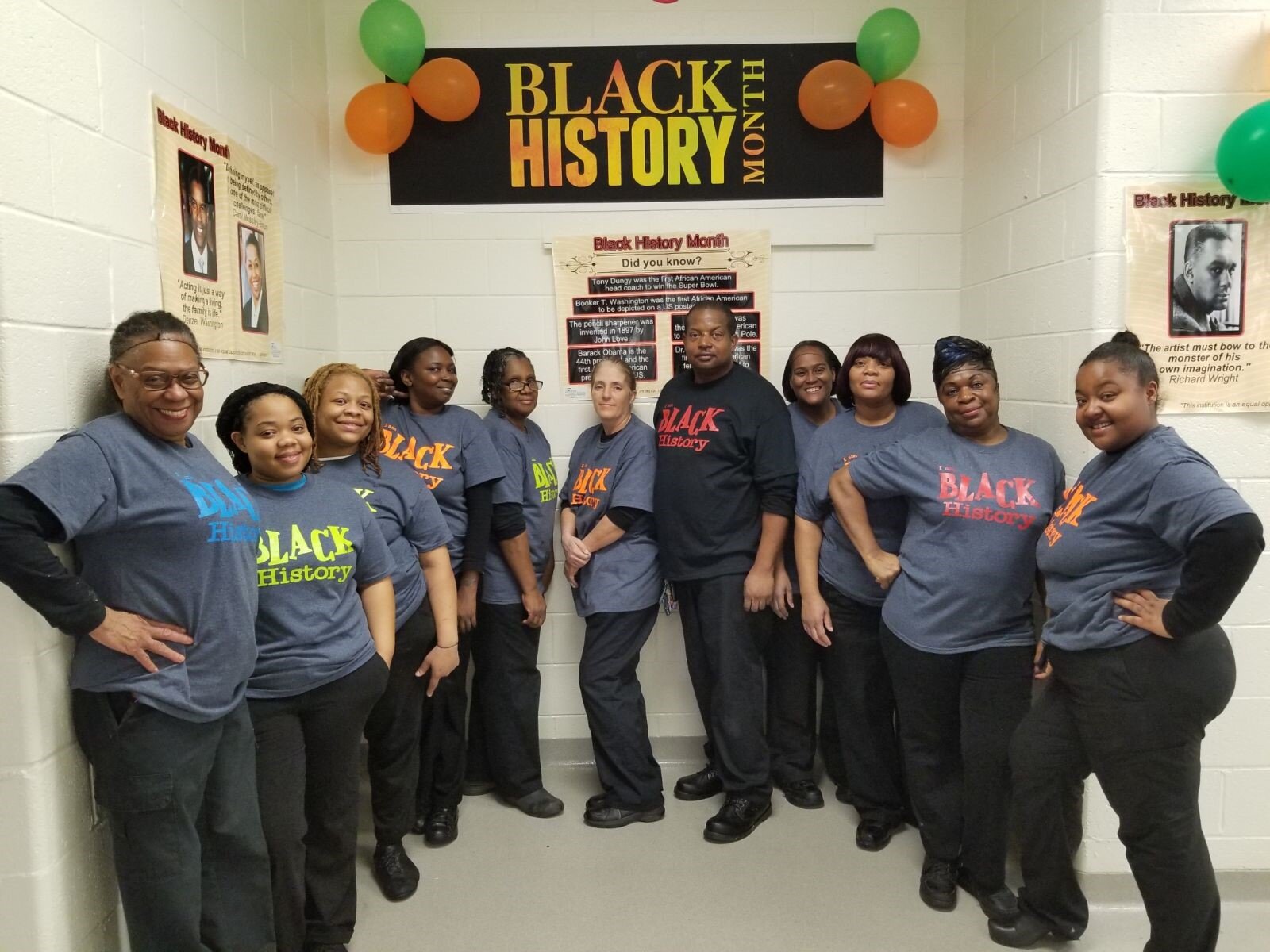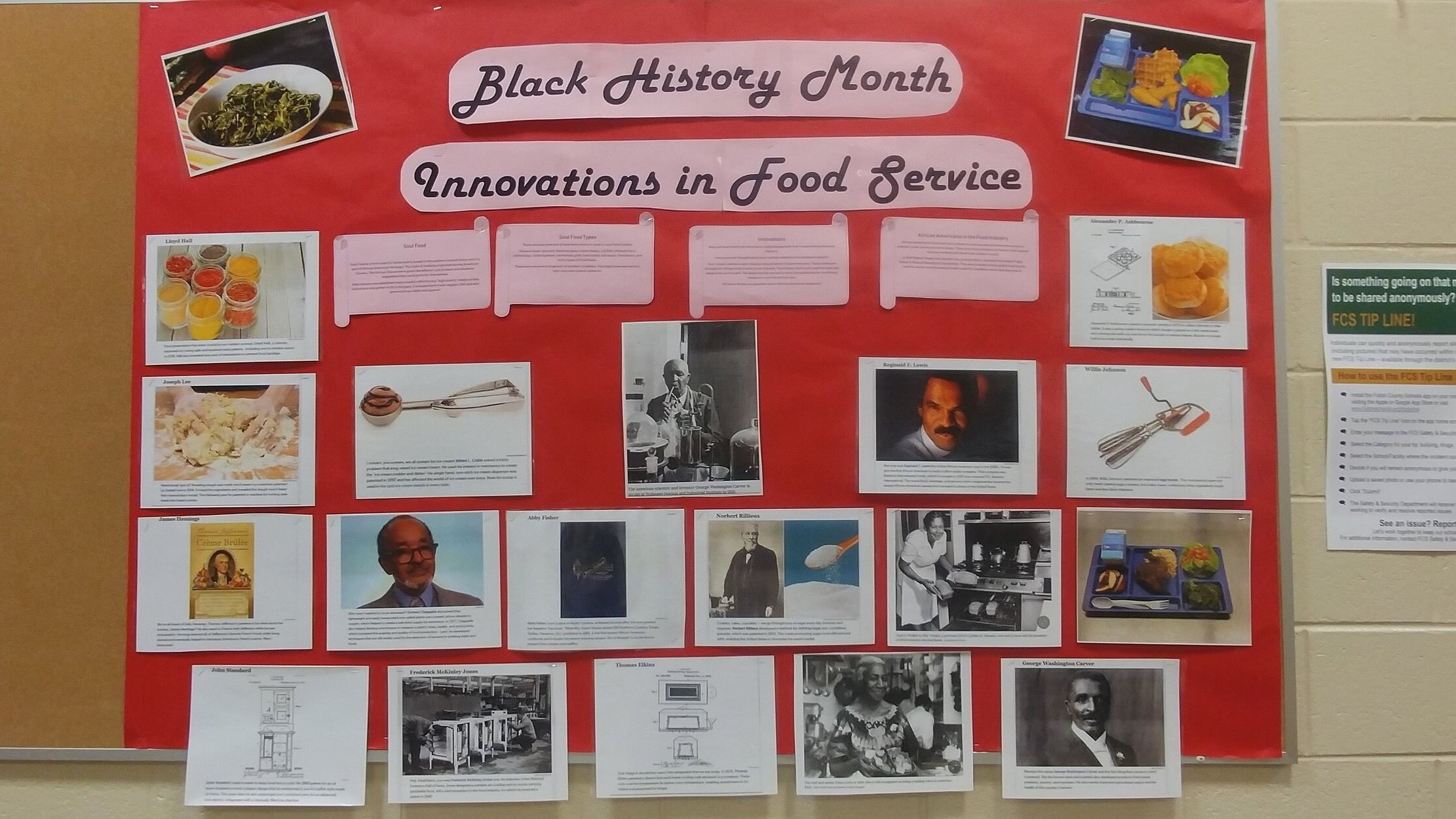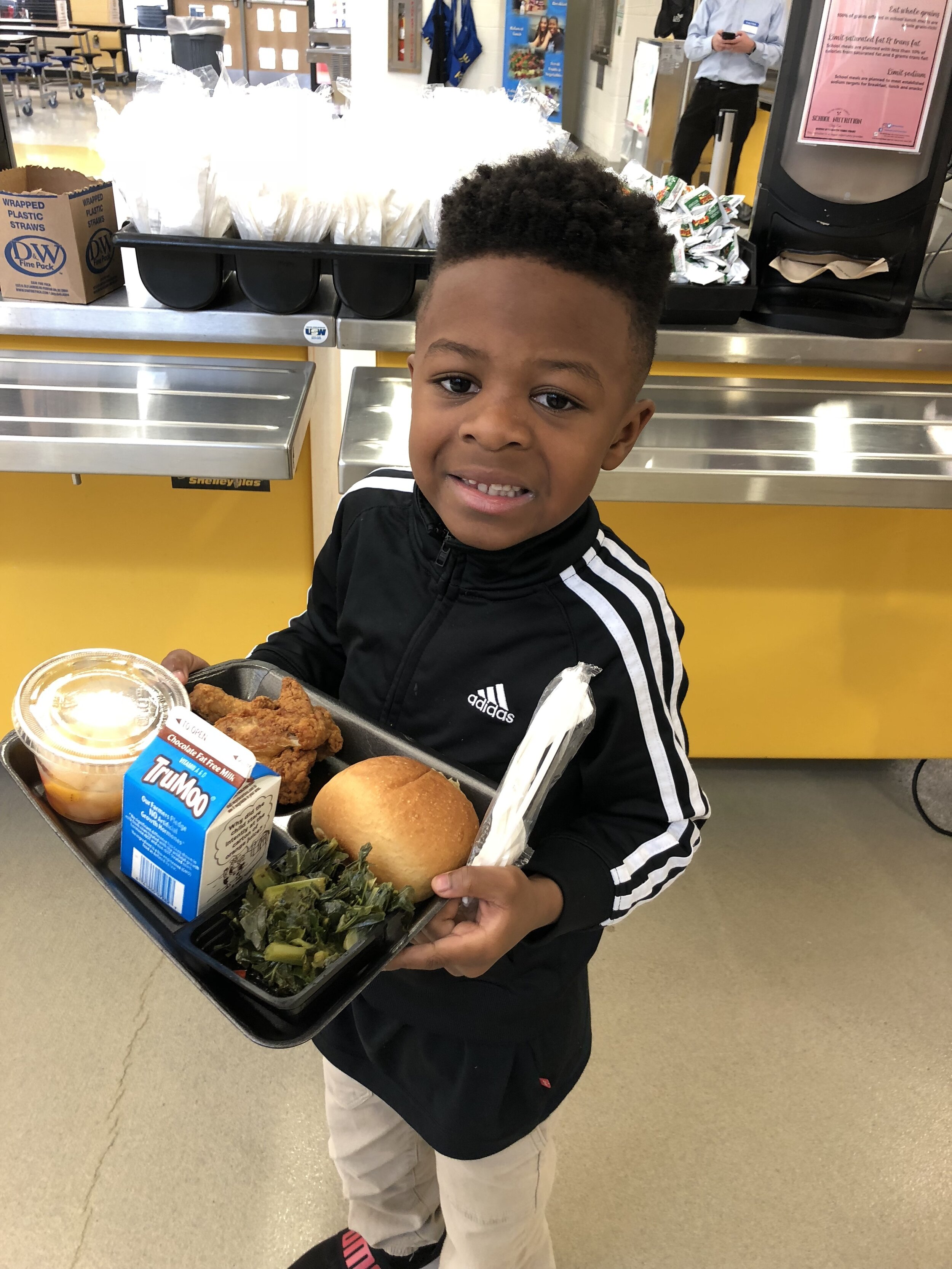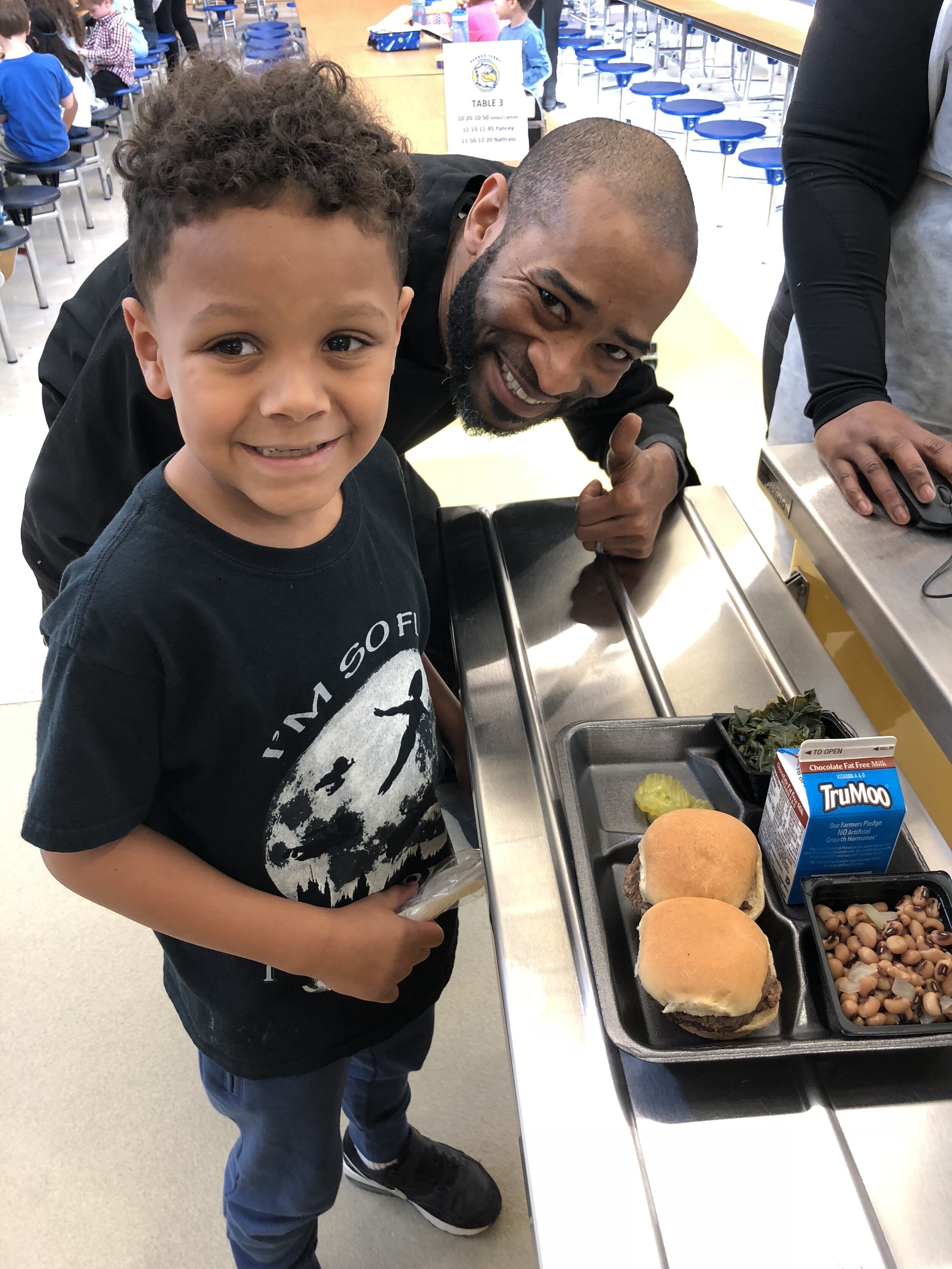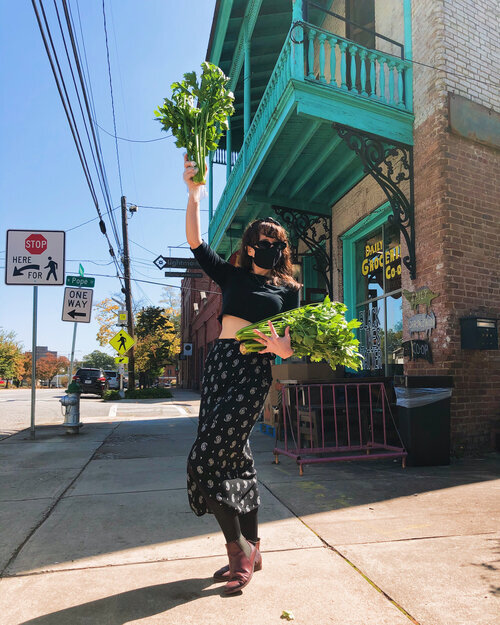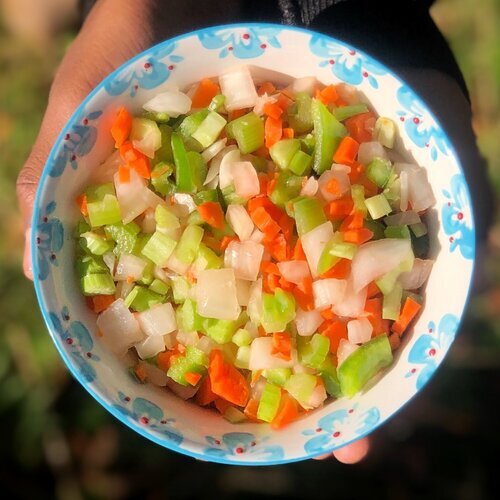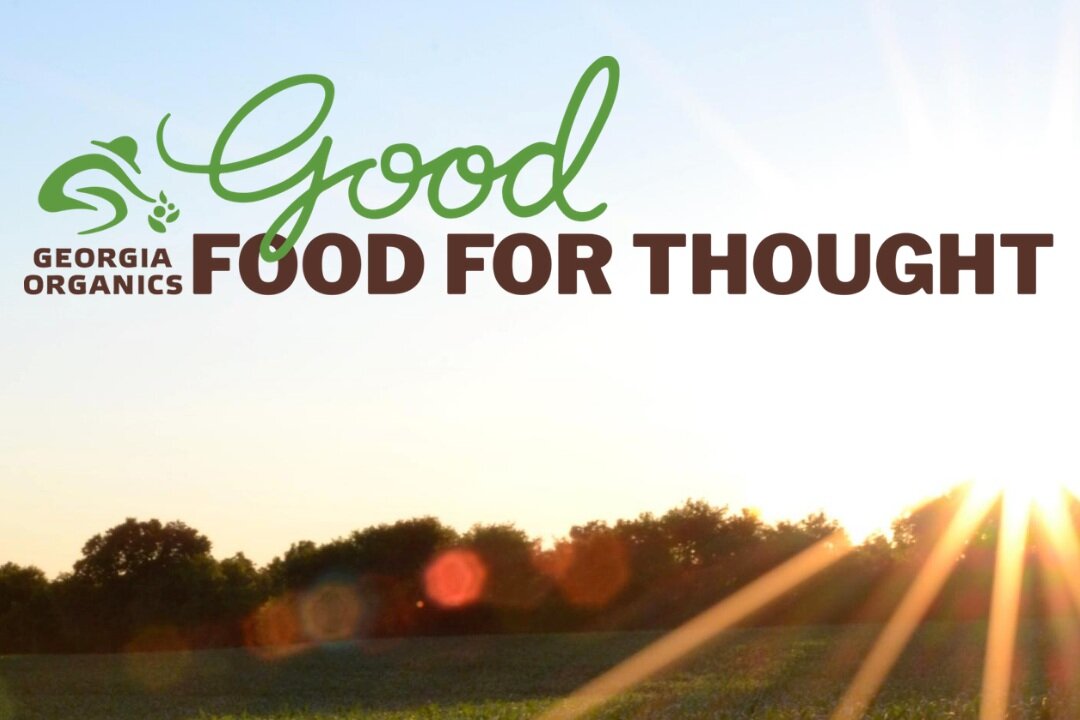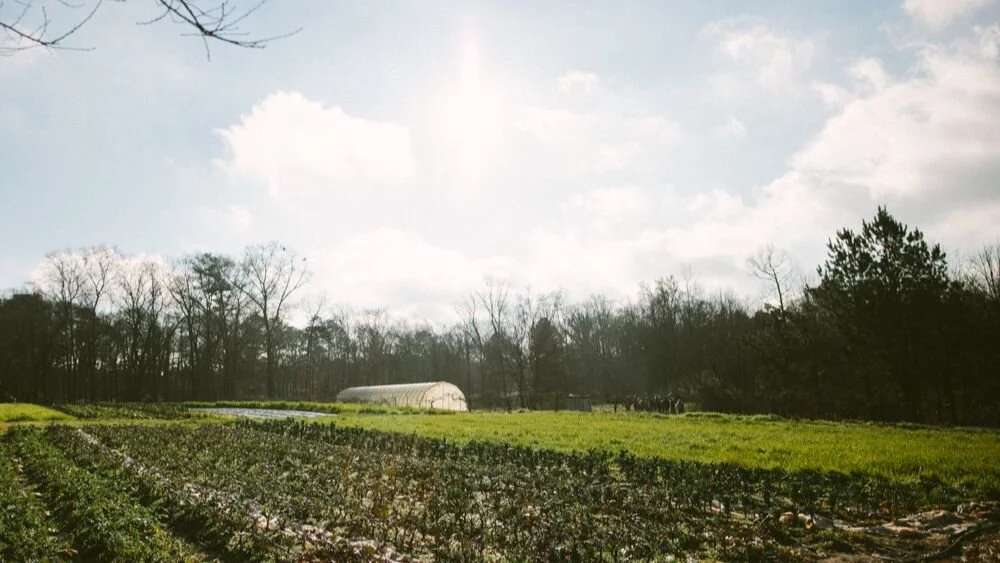By Lauren Cox
Lauren Cox leads Georgia Organics’ Farm to Restaurant and Farmer Champion campaigns as Organic Procurement Coordinator at Georgia Organics. She is also a former farmer.
Blazer of Farmer Champion Gunshow. Photo credit: Bailey Garrot. (photo taken pre-pandemic)
Farm to Table restaurant dining has had its ups and downs as popularity goes. From becoming a hallmark of California cuisine in the 1970s to reaching its zenith and broader accessibility in the early 2000s, the farm to table narrative of freshly cut greens brought in from bucolic fields to clean kitchens and hip restaurants was all the rage. Chalkboards went up, farm names were thrown around, and eaters felt empowered in thinking they knew where their money went.
Then, sadly, came greenwashing. Fad started to come before fact and some restaurants who said they were farm to table -but really weren’t- got called out.* The resulting sour taste left in everyone’s mouth, from restaurant clients to chefs and restaurateurs themselves, has unfortunately endured, in some form or fashion, to today- the street cred of publicly labeling oneself ‘farm to table’ all but vanished.
Nowadays, when you see locally-sourced food at restaurants, it’s often quietly tucked into the menu rather than spotlighted for all to see. A discerning eye may notice a pickled summer vegetable accompanying a main dish, a cured meat and local cheese board, and almost always the telltale ever-changing daily menu. The chefs and restaurants who sourced from these farms, foragers, and artisanal cheese makers back in the day have continued to do so despite the lack of faith and marketability ‘farm to table’ now holds The challenge now, however, with being less vocal about this sourcing is that it’s even harder for local-food-loving customers to find out where to go.
For those who may not know, truth is, there are many flavors of ‘farm to table’. Some restaurants will choose to support farmers through seasonal, ‘one-off’ purchasing. Take, for example, the neighborhood pizzeria that only changes its menu, once a year, for tomatoes. Then there are highly visible, highly marketable, pre-pandemic farm to table dinners featuring a prix-fixe ‘journey’ through a local farm’s walk-in cooler, steep price point, and the always exciting chance to eat dinner seated next to an honest to goodness, dirt under the nails, Canadian tuxedo-wearing farmer. There are those fundraising events that ham up chef-farm partnerships and even those restaurants that find themselves having crossed over into the farmer world through rotating chef demos and food tents at a local weekly market.
Nathan Brett of DaySpring Farms and Chris Wilkins of Farmer Champion Root Baking Co. Photo credit: Bailey Garrot. (photo taken pre-pandemic)
All these examples are valid ways for restaurants to support the local food movement , but if you were to ask a farmer where it counts, they’ll likely tell you that it’s those restaurants that buy from them week to week and month over month, that truly represent the farm to table ethos.
Quite often, the weekly flow for a farm to restaurant sourcing relationship looks something like this: The farmer walks out to their field on Monday morning and checks what’s ready for harvest. They then send a list of what’s available to whoever leads weekly ordering at the restaurant; often this is done directly with the executive chef, their chef de cuisine, or sous chef. Within a 24-hour window, the farmer receives the restaurant’s order and harvesting begins. One day passes then the farmer pulls fresh produce, meat, grain, etc. from a post-harvest temporary home, loads everything into a van, and makes the drive to deliver. Sounds pretty straight forward right? Well, not exactly.
West Georgia Farmers Cooperative farmer dropping weekly orders at Miller Union. Photo credit: Bailey Garrot. (photo taken pre-pandemic).
Many factors determine what a successful (and therefore long-lived) farm to restaurant relationship looks like. First off, does the price point work for the farmer AND the chef, and is the farmer growing something the chef wants? What about a chef that is unwilling to work with different products in place of an ingredient they originally planned for? Let’s be honest, folks, some things just don’t grow well in Georgia.
And what about supply? Some farmers may not individually have enough of one thing to supply a high-volume restaurant so is the effort in training and retraining the kitchen to switch dishes and the servers to remember the substitutes even worth it? Where is that farmer who sells unripe, green strawberries anyway?? And most importantly, will people show up to eat at these restaurants or order take out in the middle of a pandemic?
Chipping away at the mythical meaning of ‘farm to restaurant’ is valuable so that eaters can support restaurants that support farmers if they so choose. Having the knowledge to make thoughtful dining choices is more important than ever, as we’ve seen restaurants both big and small, locally owned and corporate alike, forced to permanently close their doors during the pandemic.
The takeaway is that without a doubt, where you spend your money as a consumer counts.
Aluma Farm owners Andy Friedberg and Andrea Ness with Chef Terry Koval of Farmer Champion The Deer and The Dove. Photo credit: Bailey Garrot. (photo taken pre-pandemic)
In 2019 Georgia Organics created the Farmer Champion campaign based on hearing from chefs and farmers what it looks like when restaurants source locally, day in and day out. Many of the aforementioned questions came up, but none of them deterred the restaurants that were committed to their Georgia farmers. Weekly purchasing of local products and these conversations helped inform the creation of a tiered, quantifiable scoring system based on the percentage of a restaurant’s total food costs going towards in-state and Certified Organic producers. Learn more about this system and our Farm to Restaurant program at farmtorestaurant.georgiaorganics.org/.
To date, 20 restaurants are part of this campaign, hailing from Atlanta, Athens, and Macon with their contact info listed on the Restaurants page of Georgia Organics’ Good Food Guide at gfg.georgiaorganics.org/restaurants.
In the realm of ‘farm to restaurant’, there is no doubt that relationships reign supreme so as you think about where to eat, consider supporting these connections and what they mean by eating with our Farmer Champions.
Find Farmer Champions near you on the Restaurants page of The Good Food Guide at gfg.georgiaorganics.org/restaurants
Learn more about the Farm to Restaurant program at farmtorestaurant.georgiaorganics.org/
*In 2016 the Tampa Bay Times released an investigative article titled Farm To Fable, that exposed instances of green-washing by popular Tampa Bay restaurants. Georgia Organics’ Farmer Champion campaign seeks to create transparency in sourcing and be a resource for eaters who are interested in supporting chefs and restaurants that buy from Georgia farmers while the Farm to Restaurant program works with Georgia farm to help them become restaurant ready.
















